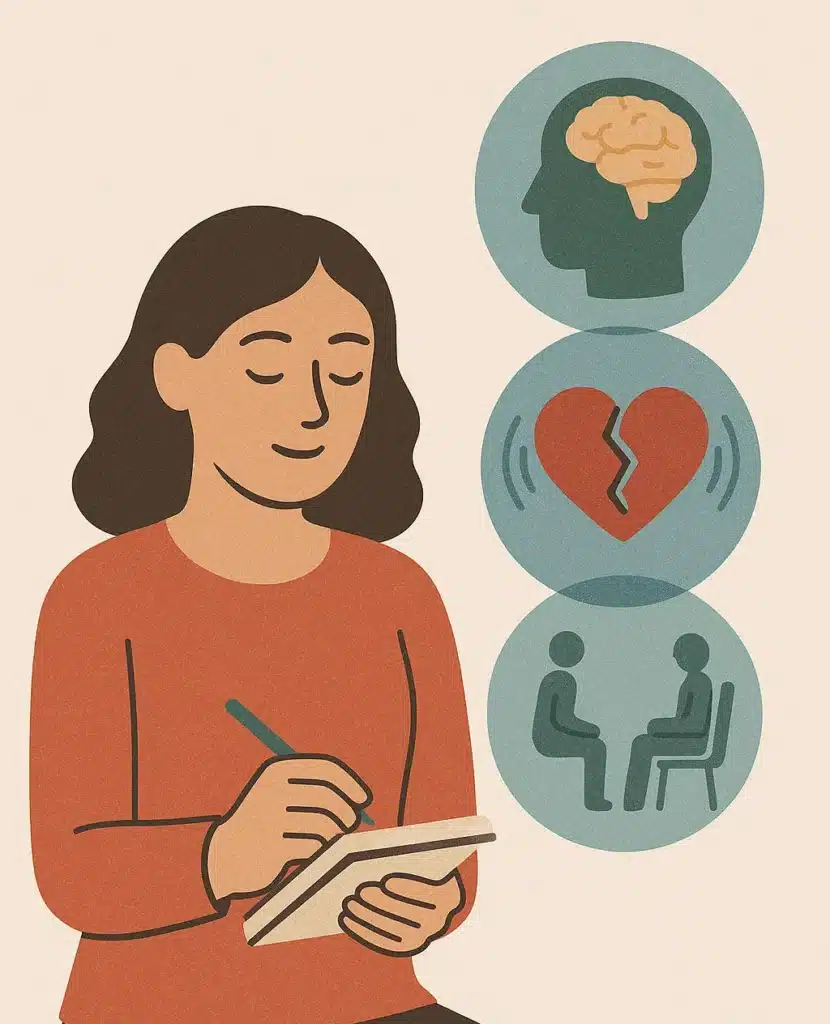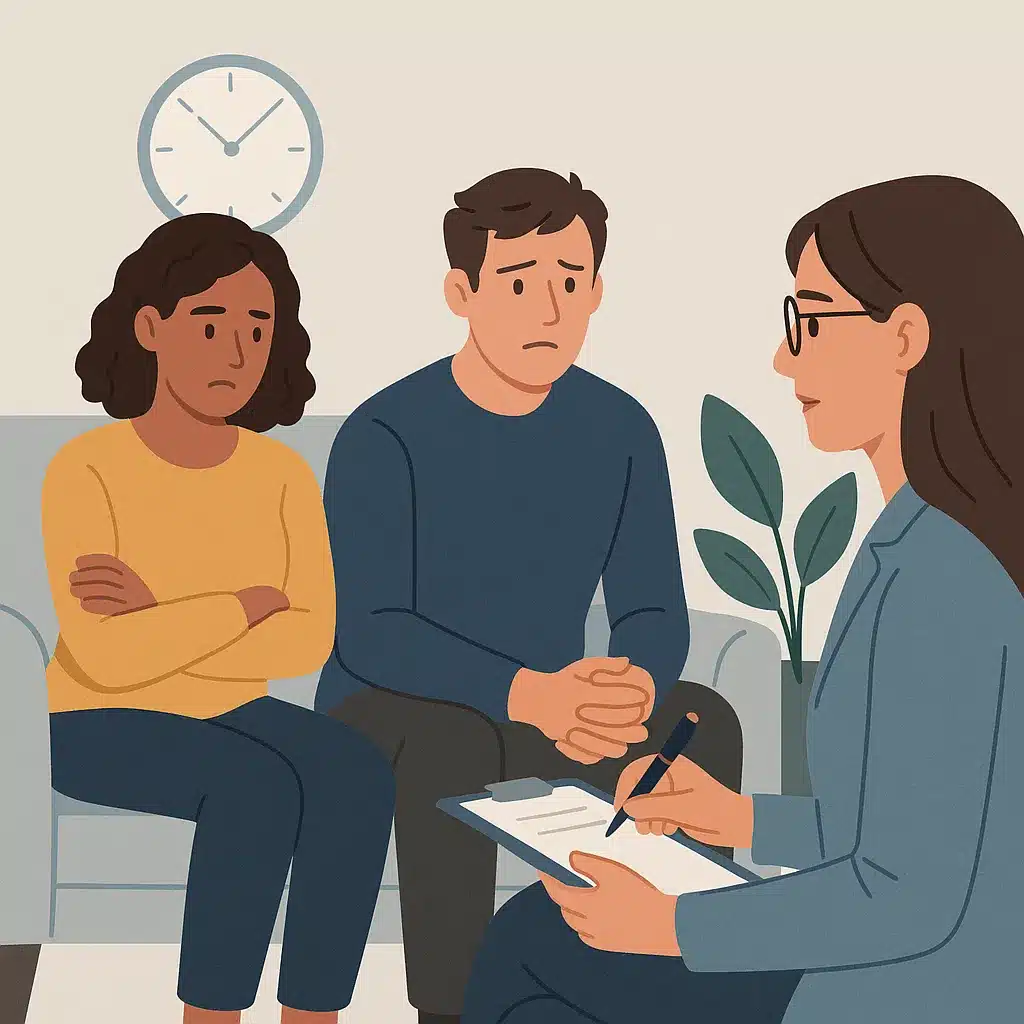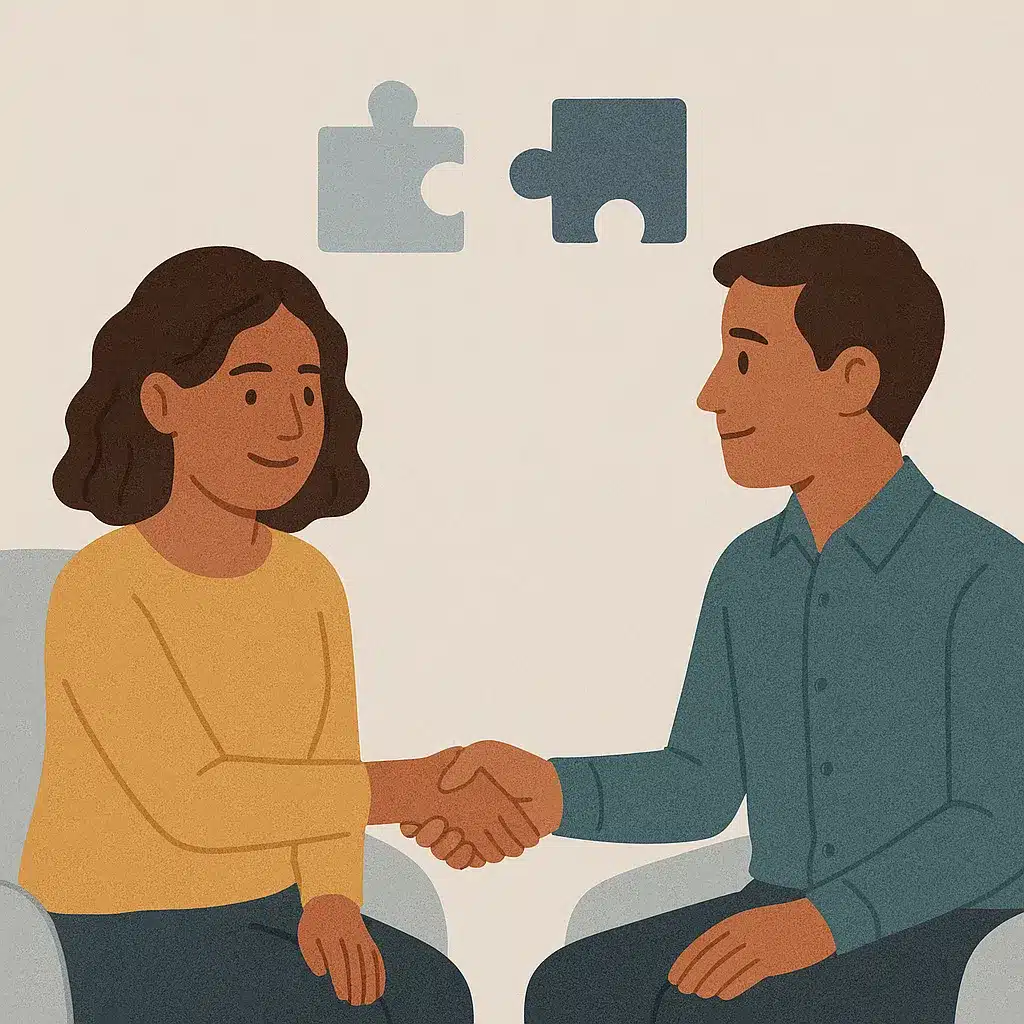Breakup Therapist NYC – Heal and Move Forward
The end of a long-term relationship, whether through separation or divorce, can be one of the most painful experiences in life. It often brings feelings of sadness, loneliness, anxiety, and even self-doubt. These emotions are natural, but seeking professional support is essential when they interfere with daily life.
At My Psychotherapy, Anat Joseph, a highly experienced breakup therapist in NYC, helps individuals process the emotional turmoil of breakups, rediscover their identity, and build a strong foundation for a healthier future. Through individual therapy, clients learn how to manage grief, reduce stress and anxiety, and develop healthy boundaries in future relationships.
If you struggle to move forward after a breakup, know you don’t have to do it alone. Therapy can help you regain clarity, rebuild confidence, and, most importantly, feel good again.

Understanding Breakup Challenges
Breakups often trigger a wave of overwhelming emotions. One day you might feel relief; the next, sadness or anger could consume you. This emotional rollercoaster is completely normal, but it can be difficult to manage alone. Some of the most common feelings include:
- Sadness and grief: The loss of a relationship can feel similar to losing a loved one.
- Anxiety about the future: Uncertainty about life after a breakup can create fear and worry.
- Guilt or self-doubt: Some people blame themselves for the breakup, leading to a drop in self-esteem.
- Loneliness: The absence of a partner can feel isolating, especially if mutual friends and family drift away.
While time helps heal emotional wounds, professional therapy can guide to navigate these feelings in a healthy way.
When to Consider Therapy
Not everyone needs therapy after a breakup, but it’s important to seek help if you:
- Struggle with persistent sadness, hopelessness, or anger.
- Experience difficulty maintaining healthy boundaries with your ex.
- Feel disconnected from friends and family and avoid social interactions.
- Have trouble focusing at work, school, or in daily responsibilities.
- Engage in self-destructive behaviors, such as excessive drinking or unhealthy coping mechanisms.
If these struggles continue, therapy sessions can provide relief and a structured treatment plan to help you move forward.
How Therapy Eases Breakup Distress

Benefits of Professional Guidance
A breakup doesn’t just affect emotions—it impacts daily routines, mental well-being, and sometimes even physical health. Seeking help from a therapist for divorce or breakup recovery can make a significant difference by:
- Providing a safe space to express emotions without judgment.
- Helping process grief, regret, and anger in a healthy way.
- Teaching coping strategies to reduce stress and anxiety.
- Encouraging self-reflection and personal growth for future relationships.

Developing a Positive Post-Breakup Outlook
The goal of therapy isn’t just to move on—it’s to feel good again and create a life that feels fulfilling. With professional support, you can:
- Let go of emotional baggage from the past.
- Regain self-confidence and a sense of independence.
- Understand what went wrong and how to build healthier connections.
Moving on after a breakup means welcoming new beginnings. Therapy gives you the tools to make this change easier.

Best Therapy Approaches for Breakup Recovery
Cognitive Behavioral Therapy (CBT) for Healing
CBT is one of the most effective techniques for managing post-breakup emotions. It focuses on:
- Identifying and reframing negative thought patterns.
- Reducing obsessive thinking about the past.
- Learning how to manage emotional triggers.
- Strengthening self-esteem and self-worth.
Personalized Therapy Plans
At My Psychotherapy, Anat Joseph tailors each treatment plan based on individual needs. This may include:
- Mindfulness techniques to reduce stress and promote emotional balance.
- Narrative therapy helps individuals redefine their personal stories.
- Online divorce counseling for flexible and accessible support.
These approaches ensure that each person receives therapy that aligns with their emotional needs and healing goals.
Divorce Counseling
Managing Grief and Emotional Turmoil
For those going through a divorce or separation, the emotional impact can be profound. Many people going through a divorce feel overwhelmed by changes in their personal and financial lives. Therapy can help:
- Process feelings of loss, anger, and uncertainty.
- Navigate conflicts related to co-parenting or property division.
- Regain a sense of identity and personal stability.
Rebuilding Self-Worth and Confidence
Life after a separation or divorce may feel unfamiliar, but it’s also an opportunity for personal growth. Therapy helps individuals rediscover independence and embrace new opportunities with confidence.

Does Couples Therapy Work After a Breakup?

When to Consider Joint Counseling
While many individuals seek individual therapy, some may benefit from couples therapy after a breakup. This can be useful for:
- Co-parents who need to maintain a positive dynamic.
- Former partners seeking closure and understanding.
- Couples exploring the possibility of reconciliation.

Achieving Closure and Healthy Communication
The goal of therapy isn’t just to move on—it’s to feel good again and create a life that feels fulfilling. With professional support, you can:
- Let go of emotional baggage from the past.
- Regain self-confidence and a sense of independence.
- Understand what went wrong and how to build healthier connections.
Moving on after a breakup means welcoming new beginnings. Therapy gives you the tools to make this change easier.
Finding the Best Breakup Therapist in NYC and How Much does it Cost
Qualities of an Effective Divorce Counselor
Choosing the right divorce counselor is essential for effective healing. A good therapist should:
- Specialize in separation and divorce recovery.
- Use evidence-based techniques like CBT.
- Provide a structured but compassionate approach to healing.
Should You Work with a Female Therapist?
Some individuals feel more comfortable working with a female breakup therapist in NYC for added emotional support. Finding a therapist who aligns with your needs can make healing more effective.
What Affects Counseling Fees?
The cost of therapy sessions varies based on:
- The therapist’s experience and specialization.
- In-person vs. online divorce counseling options.
- Insurance coverage and private session rates.
Exploring Affordable Therapy Options
If cost is a concern, options include:
- Sliding-scale therapy fees are based on income.
- Group therapy for post-divorce support.
- Online divorce counseling is often more affordable than in-person sessions.
Investing in therapy is investing in emotional well-being and a brighter future.
Start Your Healing Journey
Healing from a breakup takes time, but you don’t have to go through it alone. Therapy can provide the support and clarity needed to rebuild your life.
Because Your Happiness Matters.
Understanding Therapy Costs in NYC
What Is the Average Cost of Therapy in NYC?
The cost of therapy in New York City varies based on the therapist’s experience, session length, and location.
Therapy sessions cost an average of $200 to $300 per session. Some therapists offer sliding-scale pricing based on financial need.
How Much Does Therapy Cost in NYC?
Factors affecting therapy costs include:
- Therapist Credentials: Licensed professionals with specialized training may charge higher fees.
- Session Type: Online therapy may be more affordable than in-person sessions.
- Insurance Coverage: Some insurance plans cover therapy, reducing out-of-pocket expenses.
Is $200 a Lot for Therapy?
While $200 per session may seem high, it reflects professional expertise and personalized care costs.
Many therapists offer flexible payment options, making therapy accessible to more individuals.

Schedule Your First Session
At My Psychotherapy, Anat Joseph and her team help individuals navigate breakups, divorce or separation, and relationship challenges with compassion and expertise. Whether you’re dealing with the aftermath of a long-term relationship or a recent split, professional support can help you confidently move forward.
